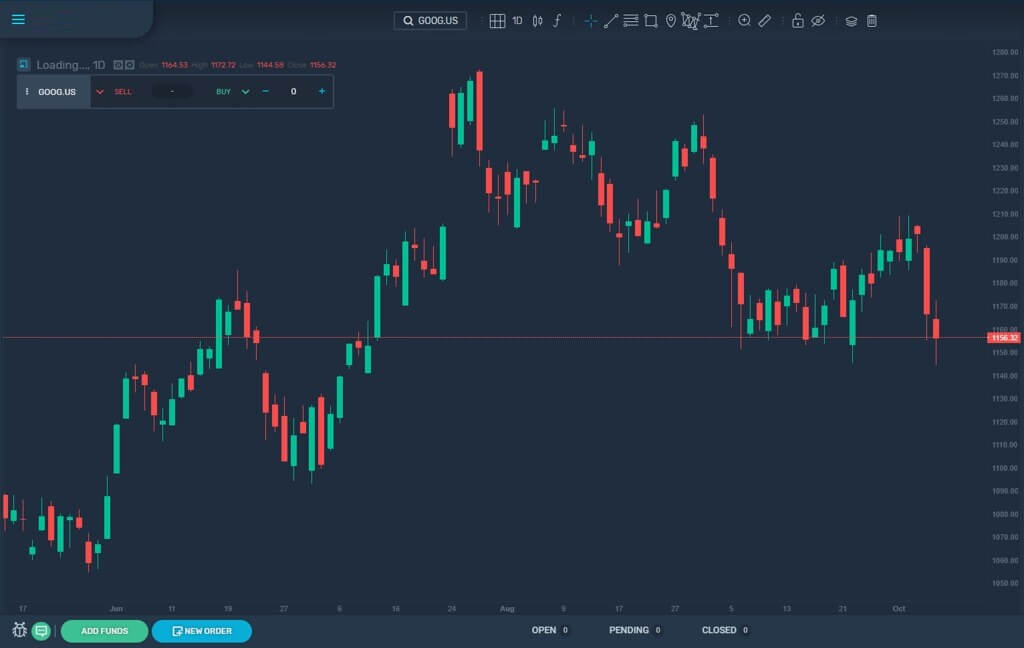Top Strategies for Successful CFD Trading
Top Strategies for Successful CFD Trading
Blog Article
Agreement for Difference (CFD) trading is a well known way to purchase numerous economic areas without possessing the main assets. For novices, it can appear complicated at first, but with the proper strategy, it provides an accessible and variable way to trade. Whether you wish to examine forex, shares, commodities, or indices, CFDs offer a wide spectrum of opportunities. This short article will guide you through the primary measures to begin with with cfd trading as a beginner.
What Are CFDs and Why Are They Popular?
A Contract for Difference (CFD) is an economic derivative solution that enables traders to speculate on value actions of assets without buying them. Essentially, you enter a contract with a broker, and your profits or losses depend on the asset's value difference from once the agreement is exposed to when it's closed.
CFDs are appealing for a number of factors:
Influence: With CFDs, that you don't need to spend the total amount of the asset's value. Instead, an inferior margin deposit is required, letting you get larger publicity with less capital.
Flexibility: CFDs allow equally extended (buy) and small (sell) roles, which means you can potentially revenue whether rates move up or down.
Diverse Markets: You are able to trade in a variety of areas, including forex, commodities, cryptocurrencies, and shares, all through one platform.

Steps to Get Started with CFD Trading
1. Understand the Fundamentals of CFD Trading
Before jumping into live trading, it's essential to know the way CFDs perform, including crucial concepts like leverage, profit, and spreads. Control amplifies both profits and failures, therefore controlling it efficiently is vital.
There are many of on the web courses, courses, and publications accessible to help you build theoretical knowledge. Make sure you cover issues such as risk administration, trading psychology, and making a trading strategy.
2. Pick a Reliable CFD Broker
Your trading experience depends heavily on the broker you choose. Look for a dependable broker that provides:
Regulation by a recognized power (e.g., FCA, ASIC, or CySEC).
A user-friendly trading software ideal for beginners.
Access to a wide range of markets.
Translucent expenses and competitive spreads.
Studying client reviews and exploring demonstration records are good ways to assess a broker's consistency before doing your funds.
3. Exercise with a Test Bill
Many CFD brokers offer a test bill where you can industry virtual profit live market conditions. That is a superb way to practice your trading abilities, test strategies, and get acquainted with the trading platform without risking true capital. Spend at the very least a few weeks utilizing the test account before changing to actual trades.
4. Begin Little and Control Dangers
When you're prepared to deal with a real income, begin with a modest level of capital that you can afford to lose. Use stop-loss requests to restrict potential failures and prevent over-leveraging your account.
For instance, if you choose to industry forex CFDs, endangering just 1-2% of your consideration per trade is just a common rule used by successful traders. That ensures that the simple bad industry won't put your whole bill at risk.

5. Consistently Improve Your Strategy
CFD trading involves regular understanding and adaptability. Evaluation your trades frequently to analyze what's working and what isn't. Keep track of media and traits that affect the economic areas you are trading in and refine your technique as you obtain experience.
Final Thoughts
CFD trading is a thrilling opportunity for beginners, but it's necessary to approach it with caution and preparation. By getting time to learn the basic principles, training with a demo consideration, and trading with a risk management technique, you are able to build your confidence and skillset around time.
Remember, while the potential for income is high in CFD trading, therefore could be the risk. Start slow, industry intelligent, and hold learning. For more ideas and improvements about market styles, sign up to our newsletter nowadays! Report this page